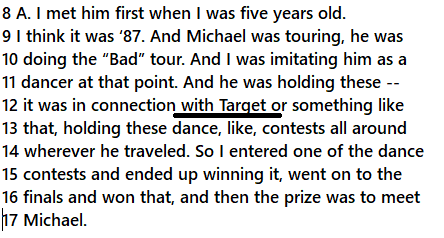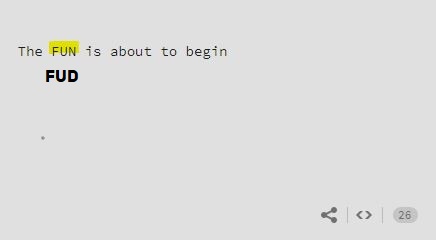Today, in #WealthOfTweets, more rude produce, #AdamSmith's opinions about Scottish Cheese, and, to be perfectly honest, an irresponsible amount of poop. #WealthOfTweets #SmithTweets
https://t.co/kSQXs0C7cC
#CircleOfPoop #WealthOfTweets #SmithTweets
https://t.co/5jUXMxWM0J
#WealthOfTweets #SmithTweets
More from @AdamSmithWorks
Book II of #WealthOfNations! It's all about stock! Not the kind you fill with chicken and noodles, but the kind that (according to #AdamSmith) makes commercial society go 'round. (II.intro)
https://t.co/FlxQLGdjbW
#WealthOfTweets #SmithTweets
First! A quick review: without division of labor, every person must provide everything they need. No one accumulates or stores up stock. You do what you can with what you have when you have it. (II.intro.1) #WealthOfTweets #SmithTweets
But once the division of labor develops (remember, it’s the secret sauce!) we have so many wants that we can’t provide for them all ourselves. Most of them are provided for by others, and we purchase their labor with our own. (II.intro.2) #WealthOfTweets #SmithTweets
Here's why this all matters when we think about stock: we can’t purchase other people’s labor until we have completed (and been paid for) our own. So we need a stock of supplies to sustain us until we can finish our work and get paid. (II.intro.2) #WealthOfTweets #SmithTweets
Obviously, we need that BEFORE we start working in this way. So to get the division of labor you need the accumulation of stock. It’s an ingredient of the secret sauce. (All the best sauces are made with stock!) (II.intro.3)
https://t.co/wi1HtrmBPb
#WealthOfTweets #SmithTweets
https://t.co/FlxQLGdjbW
#WealthOfTweets #SmithTweets
First! A quick review: without division of labor, every person must provide everything they need. No one accumulates or stores up stock. You do what you can with what you have when you have it. (II.intro.1) #WealthOfTweets #SmithTweets
But once the division of labor develops (remember, it’s the secret sauce!) we have so many wants that we can’t provide for them all ourselves. Most of them are provided for by others, and we purchase their labor with our own. (II.intro.2) #WealthOfTweets #SmithTweets
Here's why this all matters when we think about stock: we can’t purchase other people’s labor until we have completed (and been paid for) our own. So we need a stock of supplies to sustain us until we can finish our work and get paid. (II.intro.2) #WealthOfTweets #SmithTweets
Obviously, we need that BEFORE we start working in this way. So to get the division of labor you need the accumulation of stock. It’s an ingredient of the secret sauce. (All the best sauces are made with stock!) (II.intro.3)
https://t.co/wi1HtrmBPb
#WealthOfTweets #SmithTweets
More from For later read
Nice to discover Judea Pearl ask a fundamental question. What's an 'inductive bias'?
I crucial step on the road towards AGI is a richer vocabulary for reasoning about inductive biases.
explores the apparent impedance mismatch between inductive biases and causal reasoning. But isn't the logical thinking required for good causal reasoning also not an inductive bias?
An inductive bias is what C.S. Peirce would call a habit. It is a habit of reasoning. Logical thinking is like a Platonic solid of the many kinds of heuristics that are discovered.
The kind of black and white logic that is found in digital computers is critical to the emergence of today's information economy. This of course is not the same logic that drives the general intelligence that lives in the same economy.
Help! What precisely is "inductive bias"? Some ML researchers are in the opinion that the machine learning category of \u2018inductive biases\u2019 can allow us to build a causal understanding of the world. My Ladder of Causation says: "This is mathematically impossible". Who is right? 1/
— Judea Pearl (@yudapearl) February 14, 2021
I crucial step on the road towards AGI is a richer vocabulary for reasoning about inductive biases.
explores the apparent impedance mismatch between inductive biases and causal reasoning. But isn't the logical thinking required for good causal reasoning also not an inductive bias?
An inductive bias is what C.S. Peirce would call a habit. It is a habit of reasoning. Logical thinking is like a Platonic solid of the many kinds of heuristics that are discovered.
The kind of black and white logic that is found in digital computers is critical to the emergence of today's information economy. This of course is not the same logic that drives the general intelligence that lives in the same economy.
You May Also Like
1/“What would need to be true for you to….X”
Why is this the most powerful question you can ask when attempting to reach an agreement with another human being or organization?
A thread, co-written by @deanmbrody:
2/ First, “X” could be lots of things. Examples: What would need to be true for you to
- “Feel it's in our best interest for me to be CMO"
- “Feel that we’re in a good place as a company”
- “Feel that we’re on the same page”
- “Feel that we both got what we wanted from this deal
3/ Normally, we aren’t that direct. Example from startup/VC land:
Founders leave VC meetings thinking that every VC will invest, but they rarely do.
Worse over, the founders don’t know what they need to do in order to be fundable.
4/ So why should you ask the magic Q?
To get clarity.
You want to know where you stand, and what it takes to get what you want in a way that also gets them what they want.
It also holds them (mentally) accountable once the thing they need becomes true.
5/ Staying in the context of soliciting investors, the question is “what would need to be true for you to want to invest (or partner with us on this journey, etc)?”
Multiple responses to this question are likely to deliver a positive result.
Why is this the most powerful question you can ask when attempting to reach an agreement with another human being or organization?
A thread, co-written by @deanmbrody:
Next level tactic when closing a sale, candidate, or investment:
— Erik Torenberg (@eriktorenberg) February 27, 2018
Ask: \u201cWhat needs to be true for you to be all in?\u201d
You'll usually get an explicit answer that you might not get otherwise. It also holds them accountable once the thing they need becomes true.
2/ First, “X” could be lots of things. Examples: What would need to be true for you to
- “Feel it's in our best interest for me to be CMO"
- “Feel that we’re in a good place as a company”
- “Feel that we’re on the same page”
- “Feel that we both got what we wanted from this deal
3/ Normally, we aren’t that direct. Example from startup/VC land:
Founders leave VC meetings thinking that every VC will invest, but they rarely do.
Worse over, the founders don’t know what they need to do in order to be fundable.
4/ So why should you ask the magic Q?
To get clarity.
You want to know where you stand, and what it takes to get what you want in a way that also gets them what they want.
It also holds them (mentally) accountable once the thing they need becomes true.
5/ Staying in the context of soliciting investors, the question is “what would need to be true for you to want to invest (or partner with us on this journey, etc)?”
Multiple responses to this question are likely to deliver a positive result.

























